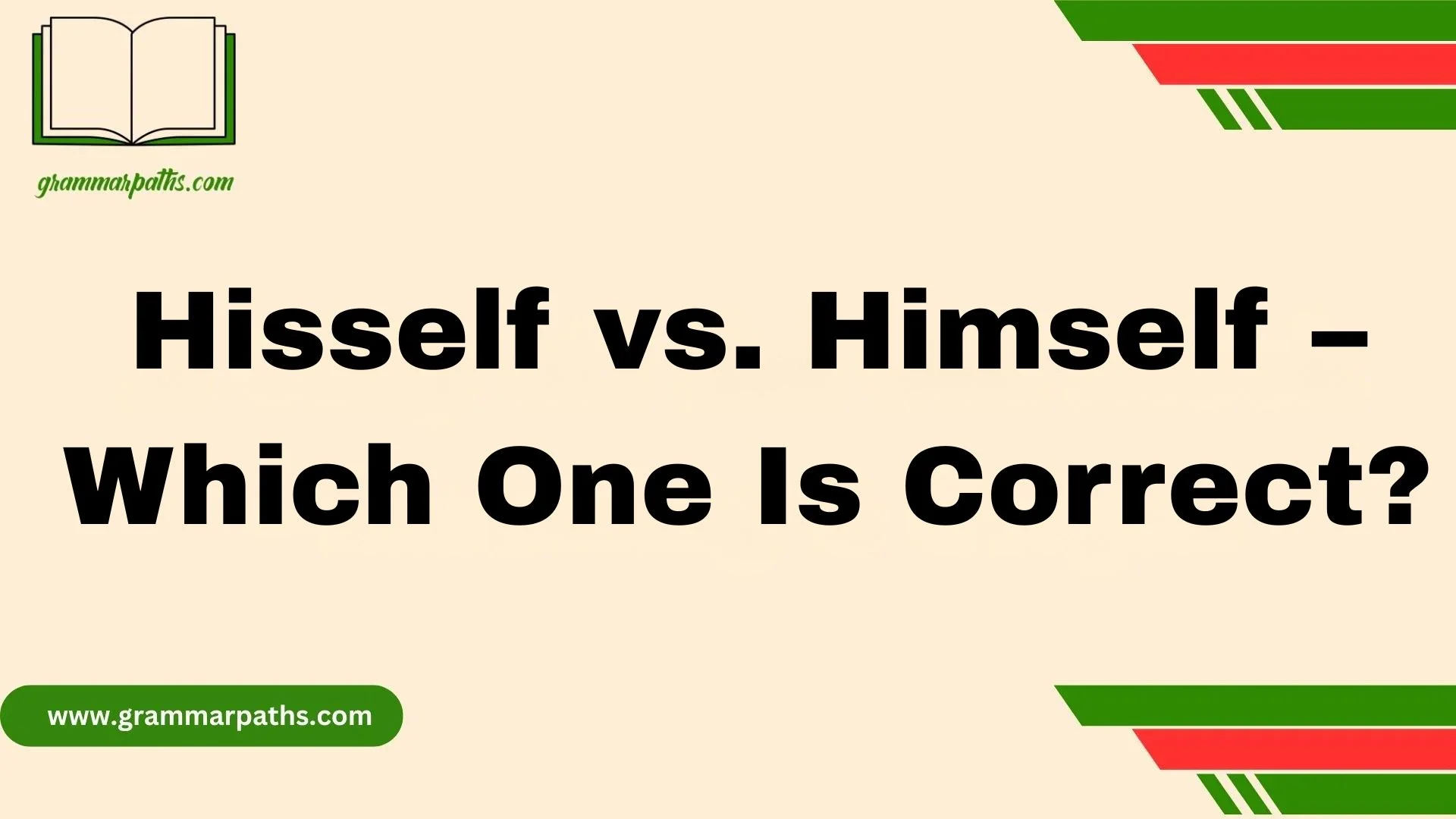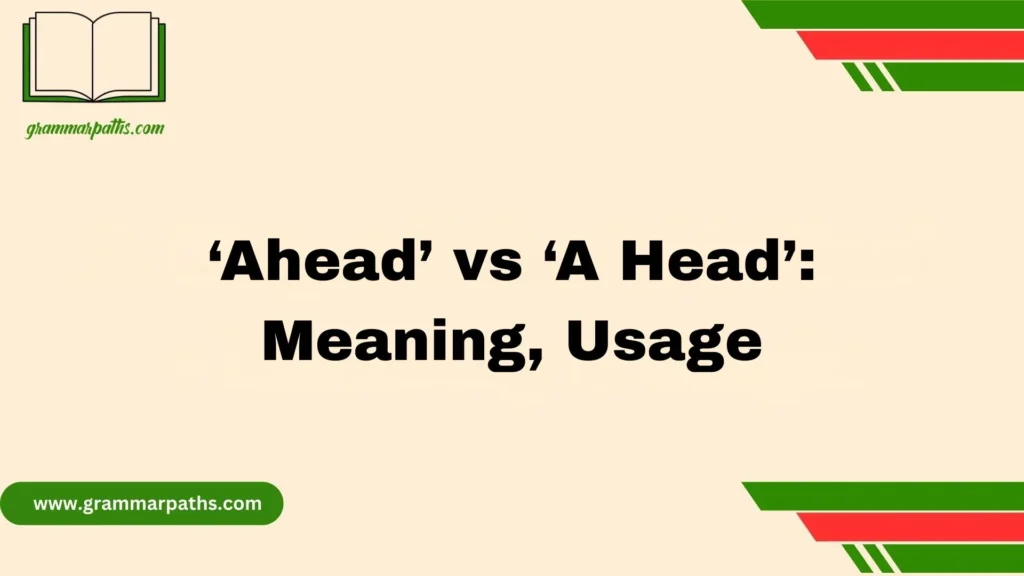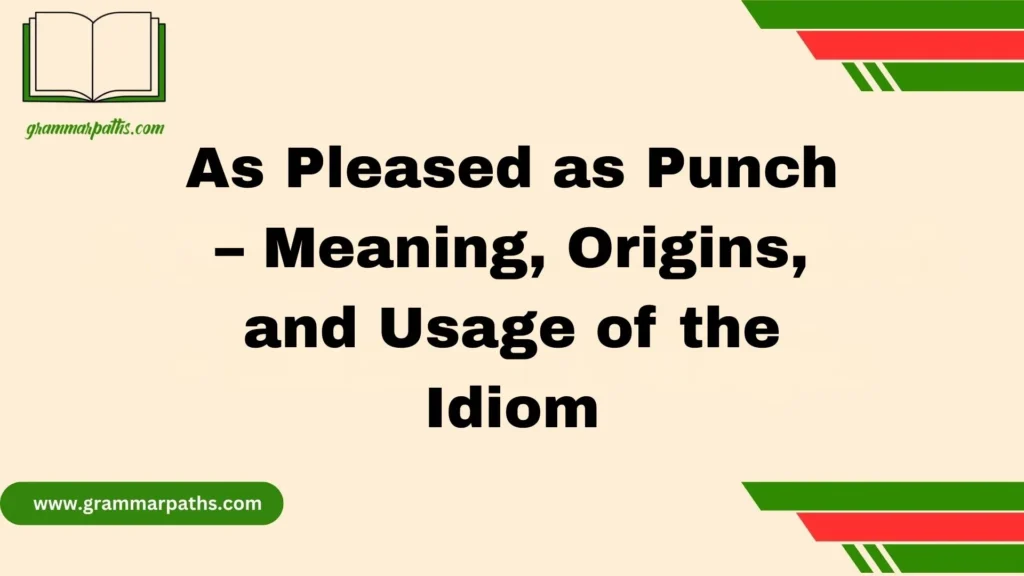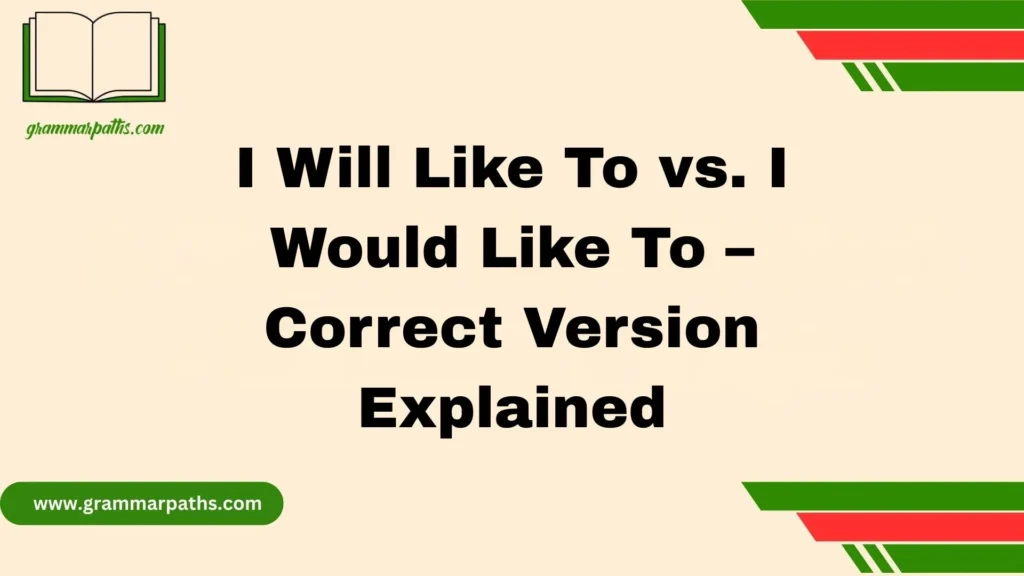Many people mix up hisself and himself without realizing it’s a grammar mistake. In the debate of “Hisself vs Himself – Which is Correct,” understanding the context and clarity these pronouns bring to a sentence is crucial. The answer may sound simple—one is correct, the other is incorrect—but the confusion often comes from everyday speech and casual conversation.
As a native English coach, I’ve seen both native and non-native speakers use hisself based on habit, not rules. They may hear it in informal settings and assume it’s okay, but it’s not part of any formal, standard guide or respected style resource. The function of reflexive pronouns follows set rules, and understanding them improves your writing.
This is where knowing the structure of a proper sentence helps. Through examples, blending spoken and written language often causes these slip-ups. But with a bit of understanding, supported by linguistic and historical research, the difference becomes obvious. Recognizing why “hisself” doesn’t fit in modern usage gives your communication more power.
Using the right term shows professionalism and builds credibility in any form of communication. Whether you’re writing casually or professionally, respecting grammar and usage not only sharpens your message but also reflects better on you. It’s not just about sounding right—it’s about being right.
What Are Reflexive Pronouns? A Quick Refresher
Reflexive pronouns are used when the subject and the object of a sentence are the same person or thing. They reflect the action of the verb back to the subject.
Common Reflexive Pronouns
| Subject | Reflexive Pronoun | Example |
| I | myself | I told myself to stay calm. |
| You | yourself | You should treat yourself today. |
| He | himself | He taught himself guitar. |
| She | herself | She made herself a smoothie. |
| It | itself | The dog scratched itself. |
| We | ourselves | We built it ourselves. |
| They | themselves | They blamed themselves. |
These pronouns must match their subjects exactly. That’s why “hisself” is problematic—it doesn’t match the subject grammatically or structurally.
The Origins of ‘Hisself’: Where Did It Come From?
While “hisself” isn’t considered proper English today, it’s not just a random mistake. Its roots trace back to older forms of English and regional dialects that still exist today, especially in:
- Southern United States
- Appalachian English
- African American Vernacular English (AAVE)
Historically, forms like “hisself,” “theirselves,” and “ourselfs” were attempts to apply logic based on possessive pronouns:
If his = possessive for he, then his + self = hisself… right?
Not quite. While it sounds logical, it breaks the grammatical structure of reflexive pronouns, which are formed from object pronouns (e.g., him + self = himself).
Still, language is always evolving. Some dialects adopted “hisself” through oral tradition, even if it never gained acceptance in Standard American English.
Is ‘Hisself’ Ever Grammatically Acceptable?
No. “Hisself” is not accepted in formal, written, or academic English. It’s flagged as a nonstandard dialectal variant by all major grammar authorities and style guides.
Sources That Reject ‘Hisself’
- Oxford English Dictionary: Lists it as “nonstandard”
- Merriam-Webster: Labels it “substandard”
- Chicago Manual of Style: Recommends avoiding dialect in formal writing unless it’s a direct quote or dialogue
“The standard reflexive pronoun for he is himself. ‘Hisself’ is not recognized in standard usage.”
— Merriam-Webster Dictionary
Why ‘Himself’ Is the Only Correct Standard Form
Let’s break it down simply:
- Subject Pronoun: He
- Object Pronoun: Him
- Reflexive Pronoun: Himself
That’s the standard rule in English grammar.
“Hisself” doesn’t follow the proper formation, because it’s attempting to combine the possessive pronoun “his” with “self,” which doesn’t follow any recognized pattern in reflexive construction.
Here’s a quick rule to remember:
Reflexive pronouns = object pronoun + “self”/”selves”
So we get:
| Subject | Object | Reflexive |
| He | Him | Himself |
| She | Her | Herself |
| They | Them | Themselves |
There’s no case in which his + self = hisself is correct.
Common Places You’ll Still Hear ‘Hisself’ (and Why That Matters)
While “hisself” is incorrect, you’ll still hear it in real life, especially:
- In regional dialects or older generational speech
- In lyrics, movies, or TV shows for authenticity
- As part of informal or humorous expression
Examples in Culture
- “He hurt hisself bad.” — Southern colloquial speech
- “Don’t nobody care for hisself more than he do.” — AAVE-style dialogue in a novel
These uses are contextual, not correct in formal writing.
Important note: Knowing these forms exist helps you understand cultural or regional expression—but they shouldn’t be used in professional communication, essays, or publications.
Examples: ‘Himself’ in Correct Sentences
Let’s see how to use “himself” properly in a sentence.
Correct Uses
- He saw himself in the mirror.
- He taught himself how to code.
- He, himself, admitted the mistake.
- John locked himself in the room.
Incorrect Uses
- He saw hisself in the mirror.
- He taught hisself guitar.
- He fixed the car by hisself.
Mini Exercise: Spot the Error
Which of the following is correct?
- The man introduced hisself to the crowd.
- The man introduced himself to the crowd.
Analogies to Help You Remember the Right Form
Analogies can be a fun and powerful way to make grammar stick.
Here are a few to help:
- Think of it like math:
He (subject) → Him (object) → Himself (reflexive)
Not: His → Hisself- Match it with she → her → herself. You wouldn’t say sheself, right?
- Mnemonic tip:
“Hisself makes a hissy fit in grammar!” 🐍❌
Quick Grammar Tips for Spotting Reflexive Pronoun Mistakes
Here’s how to avoid common pitfalls with reflexive pronouns:
- Always use a reflexive pronoun when the subject and object are the same.
- Never use them as the subject of a sentence.
- Use them for emphasis, sparingly: “I’ll do it myself.”
- Avoid made-up forms like hisself, theirselves, ourselfs
Checklist: Is Your Reflexive Pronoun Correct?
Does it match the subject?
Is it reflecting the action back to the subject?
Is it a standard form found in dictionaries?
Common Mistakes Learners and Writers Make
Let’s highlight a few repeat offenders:
Incorrect
- “He blamed hisself.”
- “She helped her own self.”
- “They introduced theirselves.”
Correct
- “He blamed himself.”
- “She helped herself.”
- “They introduced themselves.”
💡 Pro tip: Always double-check reflexive pronouns when editing academic, business, or public-facing writing.
When Correcting ‘Hisself’ Matters — And When It Doesn’t
When it does matter:
- College essays
- Business emails
- Resumes or cover letters
- News articles or reports
When it may not matter:
- Casual texting
- Regional storytelling
- Character dialogue in fiction
- Song lyrics
Bottom line: Be aware of the audience. Speak and write clearly, but don’t correct your grandma if she says “hisself”—it’s probably a cultural feature, not a grammar fail.
Final Verdict: ‘Hisself’ vs. ‘Himself’
- “Himself” is the only standard reflexive pronoun for “he”
- “Hisself” is nonstandard, ungrammatical, and should be avoided in writing
- Reflexive pronouns follow set rules — and “hisself” breaks them
- You may hear “hisself” in conversation, but never write it professionally
Quick Reference Table: Hisself vs. Himself
| Pronoun | Standard? | Example | Acceptable Context |
| Himself | Yes | He congratulated himself. | Academic, professional, casual |
| Hisself | No | He congratulated hisself. ❌ | Informal speech only |
Conclusion
In the end, the difference between hisself and himself comes down to one simple rule: “Himself” is correct, and “hisself” is not. Even if hisself might sound normal in some casual conversations or dialects, it doesn’t belong in standard English writing.
By understanding the proper use of reflexive pronouns, paying attention to grammar, and checking trusted language guides, you’ll not only avoid common mistakes but also make your writing clearer and more professional. Remember, good grammar builds trust—and small changes like this one can make a big impact on how your message is received.
FAQs
1. Is “hisself” ever correct in any situation?
No, “hisself” is considered nonstandard and is not accepted in formal writing. It may appear in some regional dialects or casual speech, but grammatically, it’s incorrect.
2. Why do people still use “hisself”?
It often comes from habit or hearing others say it in informal settings. Many people don’t realize it’s wrong because it sounds similar to other reflexive pronouns.
3. What is the correct reflexive form of “he”?
The correct form is “himself.” For example: He looked at himself in the mirror.
4. Can using “hisself” affect my credibility?
Yes. Using incorrect grammar like “hisself” can make your writing seem unprofessional. Sticking to standard English helps improve your credibility and professionalism.
5. How can I remember the right usage?
Think about standard reflexive pronouns: myself, yourself, himself, herself, itself, ourselves, themselves. “Hisself” doesn’t match the pattern and isn’t in that list—so it doesn’t belong.

Emma Brooke is a passionate language expert and contributor at GrammarPaths.com, where she helps learners navigate the complexities of English grammar, idioms, and effective writing. With a strong academic background and years of teaching experience, Emma excels at turning tricky grammar rules into simple, practical lessons that readers can easily grasp.












